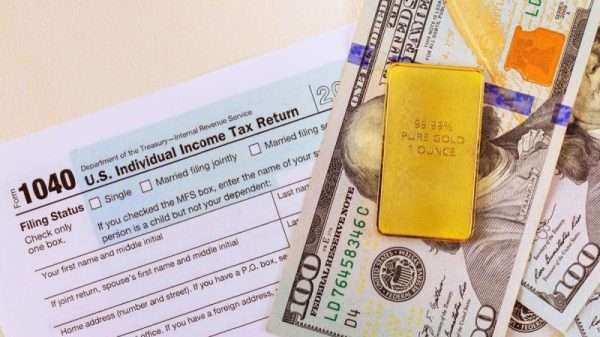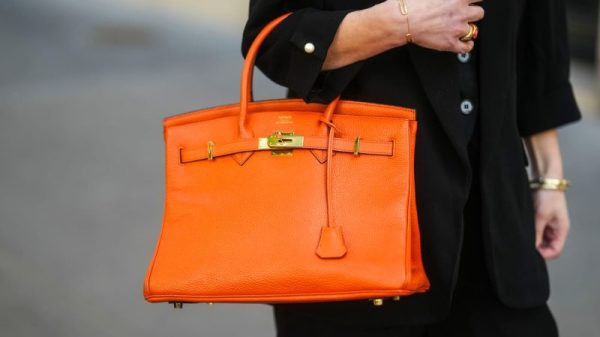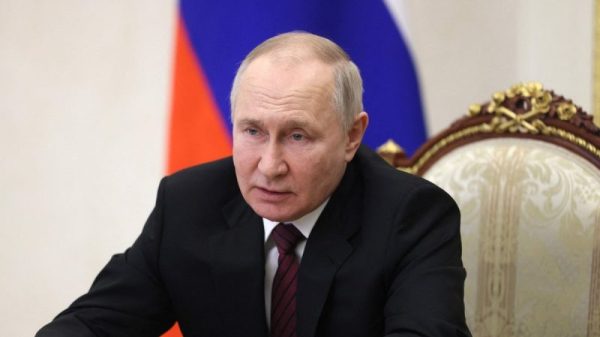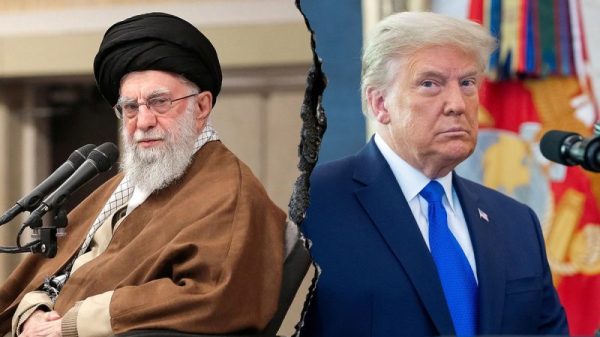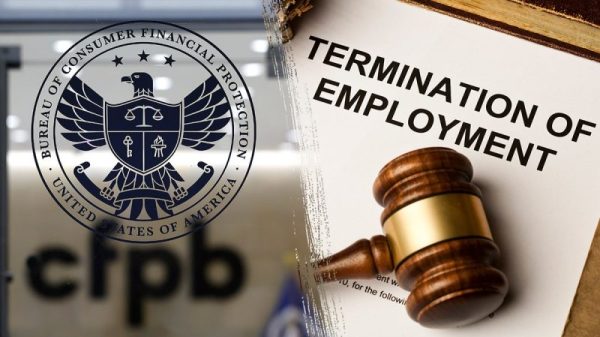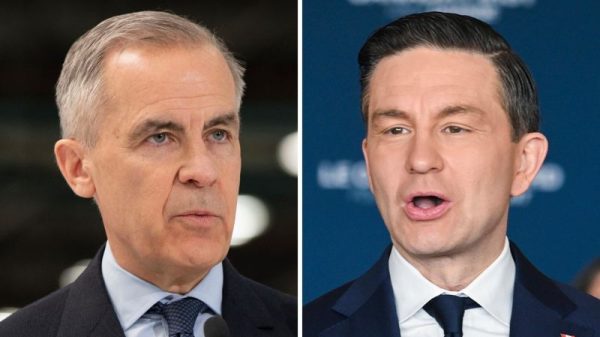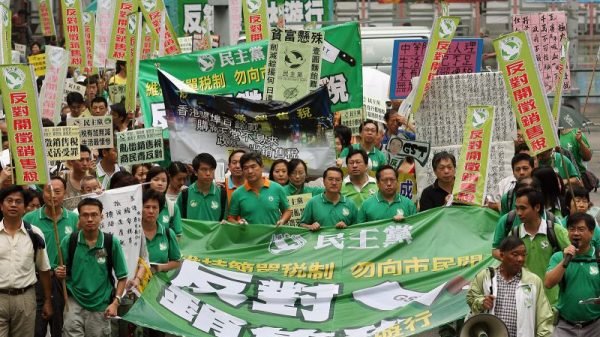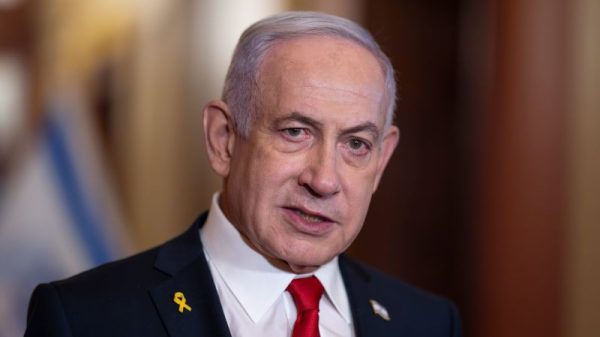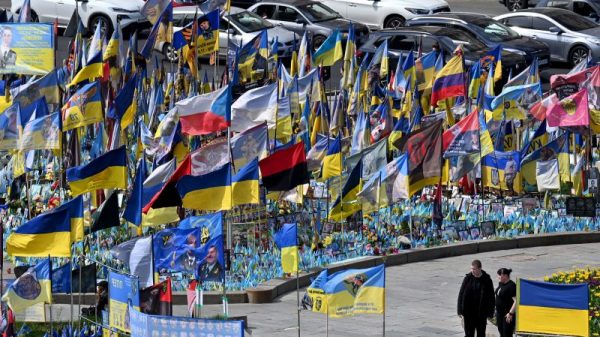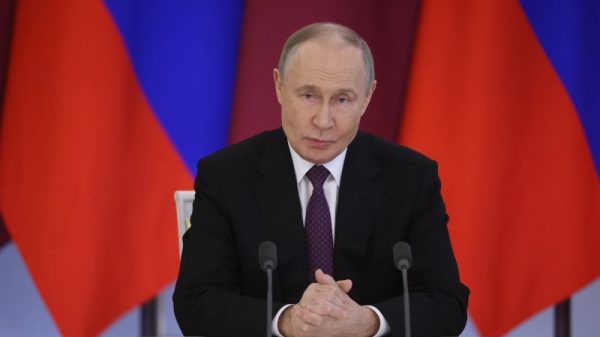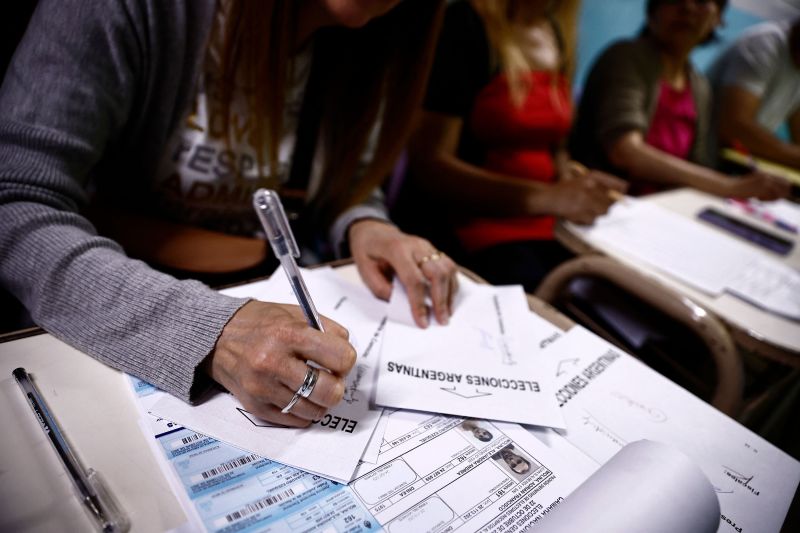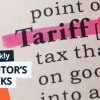The battle to decide who will run crisis-wracked Argentina is heading to a run off vote next month between left wing candidate Sergio Massa and far right libertarian Javier Milei, according to data released by Argentina’s National Electoral Chamber after the first round of voting on Sunday.
After polls closed Massa received the highest number of votes – 8,877,325, accounting for 36.33% of the total, data revealed. Milei received 7,373,876 votes – roughly 30.18%.
Third place candidate Patricia Bullrich got 23.82% and conceded defeat late Sunday night.
Each is vying for the nation’s trust at a moment of widespread disillusionment with the country’s elite and its management of the country.
The results have highlighted a strong showing for the government coalition supporting Massa, who is currently Economic Minister as Argentina finds itself in the most serious financial crisis of the last twenty years.
Turnout was over 75%, with more than 25 million Argentinians casting their ballots and over 90% of votes had been counted, the election body said.
“It has been a model day of Argentine democracy,” Julio Vitobello, general secretary of the presidency, said at a presser on Sunday night.
Inflation in Argentina has soared to 138%, Reuters reports, piling pressure on ordinary people trying to manage the cost of living.
“It’s so hard. Each day things costs a little more, it’s like always racing against the clock, searching and searching,” Laura Celiz told the news agency last month, she shopped on the outskirts of capital Buenos Aires. “You buy whatever is cheaper in one place and go to the next place and buy something else.”
After casting his vote in Buenos Aires on Sunday, current president Alberto Fernández celebrated the nation’s democracy on the social media platform X.
“I call on every Argentine to defend it and decide the future of the country at the polls,” he wrote.
Boasting lengthy experience in national politics, she recently has worked to refresh her image to appeal to younger voters, uploading viral challenges to YouTube and making reference in interviews to her relationship with her cousin, singer Fabiana Cantilo.
Massa, who is in the current government, balances a heavy ministerial portolio including inflation control, soybeans (the country’s main export) and Argnetina’s relationship with the International Monetary Fund.
He has been trying to position himself as a more pragmatic voice from the left, compared to the current government coalition, and has worked to distance himself politically from Argentina’s high-profile vice-president Cristina Fernandez de Kirchner – without alienating her power base.
Unlike his main rivals, political upstart Milei offers little governmental experience and promises to upend Argentina’s existing economic structures. For his supporters, Milei’s promises of overhaul have been seductive.
Milei, a former financial analyst and self-described “anarcho-capitalist” who wields a chainsaw at rallies, has suggested a raft of radical changes: dollarizing Argentina, slashing public subsidies and eliminating the ministries of culture; education; environment; and women, gender, and diversity.
To win in the first round of voting, a presidential candidate must obtain more than 45% of all votes or a minimum of 40% and at least a 10-point lead over the second-place candidate.
Argentina’s next president will take office in December and will begin a 4-year term.



